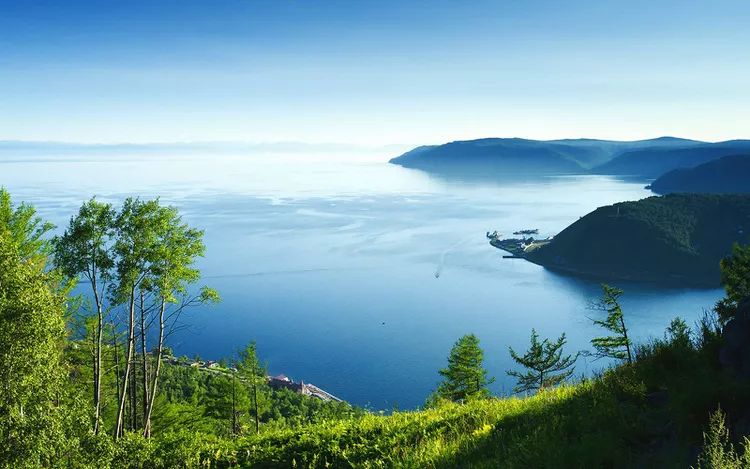1. Overview of the World’s Largest Lakes
2. Lake Superior: The Largest by Surface Area
3. Lake Baikal: The Deepest and Most Voluminous
If you want to explore the largest lakes in the world, you may need to make more than one trip. Many people assume the largest lake is Lake Superior, however, there are different criteria to consider: depth, volume, surface area, or possibly a combination of all three factors.
Lake Superior: The Largest by Surface Area
If your determination is based on surface area, head to Lake Superior, where 10 percent of the earth’s freshwater is contained. The largest of the Great Lakes of North America shares a border with Canada, Wisconsin, Michigan, and Minnesota, and it spans a grand total of 31,700 square miles.
For reference, that’s a larger surface area than Vermont, New Hampshire, Massachusetts, Rhode Island, and Connecticut combined. Massive waves have even been recorded rolling across the surface of Lake Superior; however, its main attraction is fishing. Travelers often come here for the smallmouth bass, salmon, trout, whitefish, herring, and northern pike. Consequently, there’s always something biting year-round.
Lake Baikal: The Deepest and Most Voluminous
On the other hand, if “biggest lake” refers to depth, then the title goes to Lake Baikal, located in southern Russia. Here, the icy waters plunge more than 5,000 feet down into the earth. Furthermore, it is hailed as the largest freshwater lake in terms of volume. Baikal’s extraordinary depth and volume are attributed to its unique location within an active continental rift zone, allowing depths to reach almost 4,000 feet below sea level. Notably, as much as 22 percent of all the Earth’s freshwater is stored in this Siberian lake. Moreover, Lake Baikal is recognized as one of the clearest freshwater lakes on the planet.
For those interested in learning more about the significant natural wonders, consider exploring the world’s largest aquarium — the location may surprise you. Additionally, discover more about the tallest mountain as part of your journey into the remarkable features of our planet.




